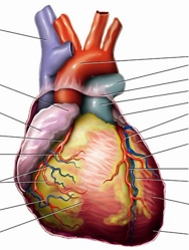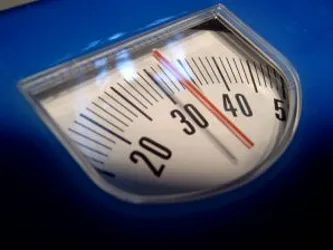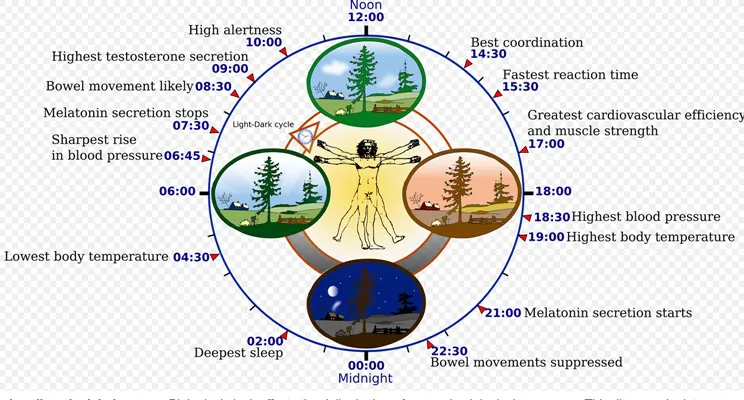
Link Between Heart Disease And Complex Carbohydrates
Introduction
Sabina Sieri was the lead author of a heart disease study at the Fondazione IRCCS Istituto Nazionale dei Tumori in Milan, Italy. The institute is a national institute for cancer research. The study evaluated approximately 48,000 people and their diet and found a link between simple carbohydrates and heart disease risk. Previous studies have also shown a similar link between simple carbohydrates and the risk of developing heart disease. This newfound link is much more significant for women than men. It also only related to carbohydrates with a high glycemic index such as white bread, rice, potatoes, cereal, pasta and similar. Only carbohydrates with a high glycemic index appear to hurt the heart. Carbs with a low glycemic index such as fruit and pasta were not associated with an increased risk of heart disease. Sieri's study determined that carbohydrates alone did not cause the risk factor for cardiac disease, but only foods with rapidly absorbed carbohydrates. Some studies also indicate that a diet loaded with carbs containg a high glycemic index can also retard healthy hair growth cycles and may even be indicated in accelerated hair loss in some cases. The Glycemic IndexThe glycemic index ranks, on a scale from 1 to 100, how quickly (or slowly) carbohydrates affect blood-sugar levels. As an example, white bread scores 100.)
Foods which rank below 55 are considered to have a low glycemic index and produce only small fluctuations in blood glucose and insulin levels. Foods which rank above 70 are said to have a high glycemic index and tend to cause unhealthy spikes in blood sugar. Is the Glycemic Index a Reliable Tool to Choose Your Carbs?The glycemic index became very popular several years back during the low-carb diet craze, when both Dr. Atkins of The Atkins Diet and Dr. Agatston of the South Beach Diet began advocating the use of this index in choosing foods. Several studies have been published which divide foods according to their glycemic index and use it as a baseline for determining the role of carbs on various health problems. The underlying premise is that some foods can seriously raise your blood sugar and as a result causes harm and damage in the body. Unfortunately many experts believe the glycemic index is not a valid tool for determining the best foods to consume. Fructose Is The Exception
Fructose is a classic example of flaws in the glycemic index. Although it ranks very low on the index, it's disastrous for overall health. The glycemic index also doesn't measure how a specific food or ingredient will ultimately impact blood sugar. The index also fails to take into account the harm chemicals like sucralose, sorbitol and refined fructose contained in low-GI foods do to the human body. These ingredients convert directly into triglycerides and adipose tissue instead of blood glucose, accelerating obesity, diabetes, hypoglycemia and heart disease. Experts suggest that utilizing the glycemic index is not the most reliable method for determining the best nutritional program for the body.
Refined Carbohydrates And Fat ConversionWhen the human body consumes more carbohydrates than can be used, the liver converts all the excess energy fat. The reason the liver converts the unused carbohydrate energy to fat is because it's role is to maintain a balanced blood sugar level.
Although the liver's fat conversion process works in the short-term, it most likely also cause a definite spike in triglyceride concentrations. In the long term this spike in triglycerides has been proven to significantly increase the long term risk of cardiovascular disease. Glucagons And Growth HormonesThe insulin stimulated by a diet with an overabundant consumption of high glycemic carbs also suppresses glucagons and growth hormones. These two important hormones are responsible for burning fat and sugar as well as promoting muscle. When these two hormones are suppressed as a result of a diet high in glycemic carbs, the body promotes fat deposits while blocking the body's ability to lose excess weight. It is a well-known fact that obesity is a well-known risk factor in several serious diseases including heart disease. Double The Risk Of Heart DiseaseA study published in the American Journal of Clinical Nutrition linked refined carbohydrates to more than double the risk of heart disease. In the American Journal of Clinical Nutrition women who ate the most high glycemic foods had more than double the risk of developing heart disease as women who ate the fewest. Again this indicated that high-carb diets and their tendency to induce liver fat production along with insulin resistance was a path towards heart disease.
The human body is not designed to process large amounts of refined sugars and grains. This also explains the myriad of health effects which occur when the diet is loaded with foods like bread, pizza, pasta, bagels, rice, pancakes and waffles. A diet rich in these foods produces serious metabolic consequences. In a study of 2,300 Italians, high bread consumption was linked to a significant risk of renal cell carcinoma which is the most common type of kidney cancer. The risk of breast cancer was 87 percent higher in postmenopausal women who ate a diet heavy in refined sugars and grains. This would include foods such as white bread, rice, potatoes, some pasta, sugars and corn syrups. Also, a diet high in these food was found to potentially produce long term eye tissue damage which ultimately led to blindness. Why Refined Carbs are Among the Worst Out ThereAlong with the problems with liver fat production, insulin resistance and increased triglycerides, refined carbohydrates are nutritionally devoid foods. This means they probably absolutely no positive benefit for the body or overall health. A good example of a nutritionally devoid food is refined white flour. All refined white flour has part of the grain removed so that the flour in essence becomes a form of sugar.
After the grain is removed the flour is typically brominated which is known to produce toxic disinfection byproducts. Products which are brominated are not nutritional sound and have been converted into a hard core form of sugar. What else gets lost in the refining process?When products like white flour are refined they also lose the following benefits, vitamins and nutrients:
Many more important nutrients are destroyed in the refinement process. Also noteworthy is the fact that white flour is often bleached during the refining process. This bleaching adds a potentially dangerous chemical poison to the end product. In essence eating white flour or derived white flour products is like eating a bleached dead food. Refined Carbs: Not A Healthy Choice For Anyone
Refined carbs are simply not a healthy choice for virtually anyone. If you suffer from: Hypoglycemia Diabetes Any blood sugar disorder High cholesterol High blood pressure Obesity Cancer then refined carbs should not be on your food lists. If you suffer from the diseases listed above it would best to avoid all grains, even whole grains. Gluten IntoleranceThere are also many people who suffer from gluten intolerance without even realizing it. Gluten intolerance is a condition which can cause an array of symptoms from fatigue, depression, anemia and abdominal pain. If you have guten intolerance you should avoid all gluten-containing foods.
Difference Between Vegetable And Grain CarbsIt's important to realize that there is a major difference between vegetable carbs and grain carbs, even though they’re both referenced as "carbs." This includes organic stone ground whole grains. If you're going to eat any type of bread, you should certainly stick with high-quality whole-grain products. Remember that authentic whole-grain breads and related products are dense and heavy. All the imposters of whole-grain bread products are light and fluffy. Of course it's always important to read the labels before you buy or consume anything. Summary
The assumption can be made that most people are consuming far too many refined carbohydrates. About 75-80 percent of all people benefit from avoiding grains, even whole grain and sprouted grains. Grains rapidly break down to sugar, which causes rises in insulin which exacerbates the risk of heart disease and a range of other health problems including diabetes. Some studies also indicate that a diet loaded with carbs containg a high glycemic index can also retard healthy hair growth cycles and may even be indicated in accelerated hair loss in some cases. - Revised Date: 12/28/11 | |||||||||||||||||||||||||||
| If you want to talk more about this or other hair care articles on HairBoutique.com or anywhere else, please post a message on HairBoutique.com's Hair Talk Forums.
|
Social Media Network Information
Please follow us on Twitter at: https://Twitter.com/HairBoutique. I look forward to meeting new people from all walks of Twitter and learning from their Tweets.


























